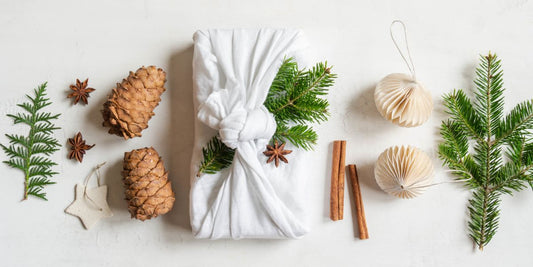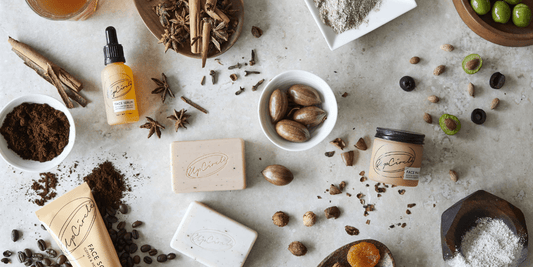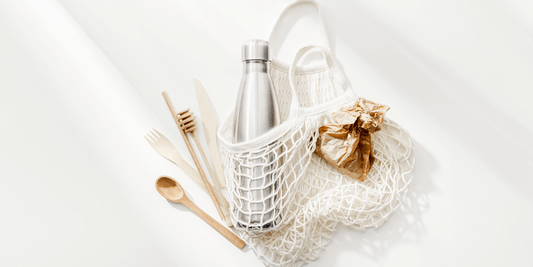Are you feeling overwhelmed by all the hype surrounding natural beauty products? Don't worry, we've got you covered! In this article, we'll break it down and provide some hassle-free tips and eco-friendly skincare swaps that won't break the bank.
Sunscreen: Chemical vs Mineral
When it comes to sunscreen, there are two main types: chemical and mineral.
Chemical sunscreens use synthetic chemicals like oxybenzone, avobenzone, octinoxate, and octisalate to protect your skin from the sun's harmful UV rays. However, oxybenzone and octinoxate are two common UV-blocking chemicals that have been found to wash into the oceans and cause harm to coral reefs and marine mammals.

If you want to make an eco-friendly choice, opt for non-nano mineral-based sunscreens. These create a physical barrier against UV radiation using ingredients like titanium dioxide or zinc oxide. Mineral sunscreens can be certified reef safe as they do not contain oxybenzone and octinoxate. For everyday use look for natural or clear mineral sunscreens that won't leave a white film on your skin.
Deodorant: Normal vs Natural
Conventional deodorants found in most stores contain aluminium, which blocks your sweat glands (also known as antiperspirants). Additionally, spray versions release harmful gases into the atmosphere, contributing to increased CO2 emissions. Natural deodorants, on the other hand, are aluminium-free and focus on fighting odours without interfering with your body's natural cooling process. They absorb moisture and repel the bacteria responsible for those funky smells.
Solid Shampoo & Conditioner Bars: Sustainable and Long-Lasting
Consider switching to solid shampoo and conditioner bars. These concentrated bars don't contain water, helping to reduce plastic packaging waste. Plus, they last longer than traditional liquid products. For instance, a 55g shampoo bar can last approximately 80 washes, which is equivalent to saving three medium-sized shampoo bottles. Saves water, saves unnecessary plastic packaging and saves you money!
Face Creams: Say Goodbye to Irritation-Causing Chemicals
If you're prone to sensitive skin or skin irritations, it might be time to switch to face creams that don't contain: Sodium Lauryl Sulfate (SLS), parabens, sulphates, phthalates, mineral oils, synthetic fragrances, and artificial colours. Look for products with gentle ingredients that won't cause any unwanted reactions.
Natural Soap: Embrace the Traditional Cold Process
Step back in time with natural soap made through the traditional cold process method. This original technique ensures the soap retains its natural goodness without any harsh additives. Top tip: keep your natural soap as dry as possible by using a soap rest or some pebbles to prevent the soap becoming a squidgy mess.
Compostable Cardboard Packaging: Scence, the Future of Skincare
Check out Scence, a skincare brand leading the way with their compostable cardboard packaging. By choosing products with sustainable packaging, you're making a positive impact on the environment and leading the way in eliminating plastic use.
Exfoliators: Gentle and Plant-Based
When it comes to exfoliation, choose gentle options that are kind to both your skin and the planet. Plant-based exfoliators like the Konjac Sponge, made from the Konjac plant, are effective and eco-friendly. Additionally, recycled coffee grounds from the food industry can be repurposed as a natural and gentle physical exfoliator, reducing waste.
Solid Hand Cream Bars and Balms: Hydration Without the Waste
Say goodbye to traditional hand cream tubes and embrace water-free solid hand cream bars and balms. These alternatives reduce unnecessary water use and eliminate plastic packaging. They also tend to last much longer than traditional creams, making them a practical, affordable choice.
Natural and Organic Bathroom Accessories: Ditch Single-Use Plastics
Take a step away from single-use plastics by incorporating natural and organic bathroom accessories into your routine. These zero-waste items can be washed and reused multiple times. When their lifespan ends, they are either compostable, biodegradable, or recyclable, leaving behind zero microplastics in our precious eco-systems.
Bamboo Cotton Buds: swap out plastic cotton buds for biodegradable ones made from sustainably sourced, fast-growing bamboo.
Reusable Makeup Remover Pads: ditch the disposable makeup remover wipes in favor of reusable pads designed to be gentle on skin, easily washable and reusable over and over again, saving you money in the long run. It's a win-win for both your wallet and the environment!
In summary, understanding the true meaning of 'natural' beauty and making eco-friendly choices in your skincare routine doesn't have to be overwhelming. By implementing simple swaps and adopting sustainable practices, you can enhance your beauty routine while taking small steps towards a greener future.









